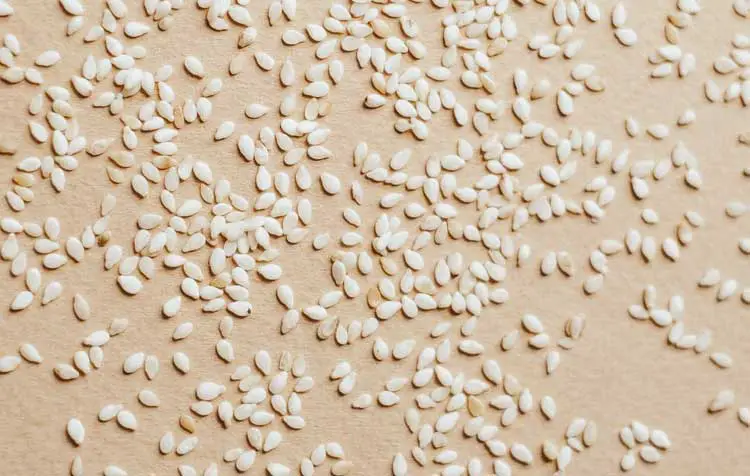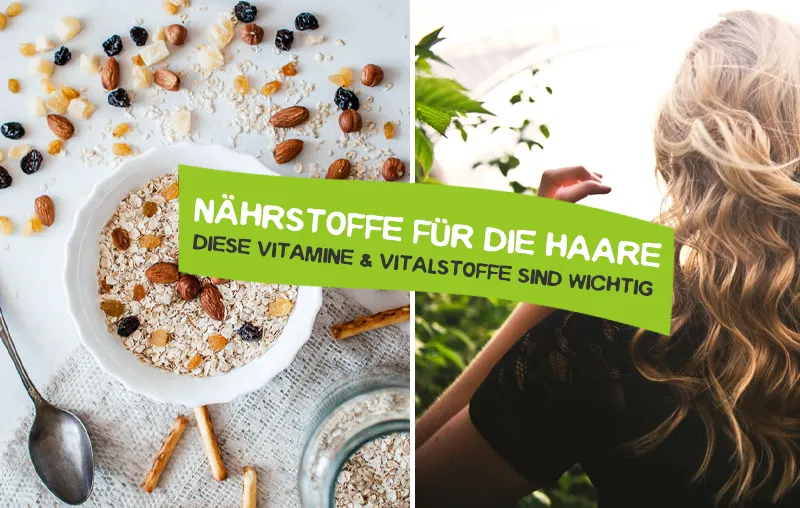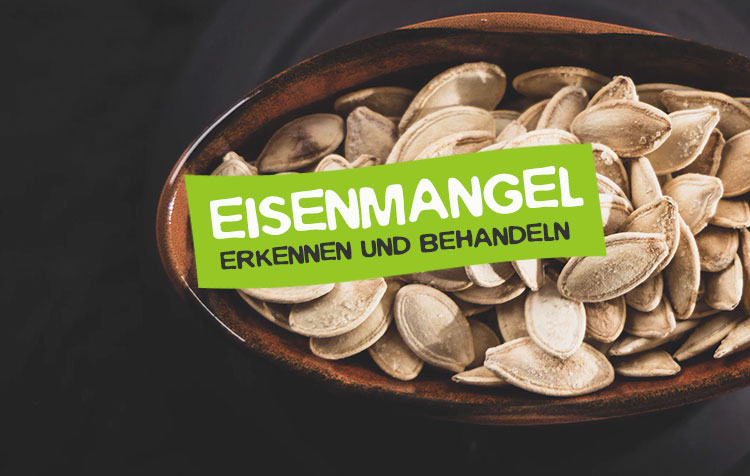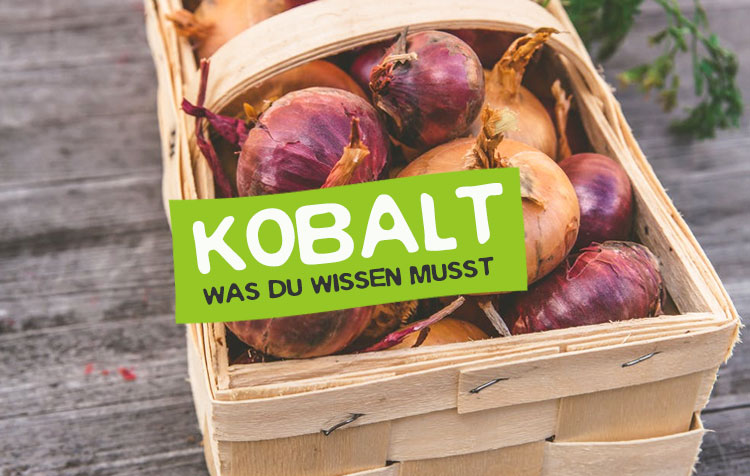You want to know more about zinc? Then you will find it here! I explain the most important details about the essential trace element. We start with a fact sheet and then continue with absorption, daily requirement, physiological significance, overdose, deficiency symptoms and the most zinc-containing foods. I have also summarized information for vegans and vegetarians and which dietary supplements can be useful.
Here is in advance a short Overview for you:
Notice: This article is not a substitute for medical advice, but only provides general information about zinc. Please consult your doctor if you feel unwell or want to prevent health problems with medical care.
Zinc PROFILE at a glance
Assignment: Essential trace element, element category transition metals
Important for: Protein synthesis, wound healing, insulin storage, immune system strengthening.
Daily requirement: 11-16 mg/day (m), 7-10 mg/day (w) from 19 years of age.1
Recording: through food intake or dietary supplements
Overdose: Upper Limit (UL): from 25-40 mg/day2,3
Deficiency symptoms: Among other things, growth disorders (children and adolescents), hair loss, skin changes, weakened immune system.
Food: Sesame seeds, pumpkin seeds, flax seeds, oatmeal, peanuts
Nutritional supplement: As drops, capsules, powder or (effervescent) tablets
How to absorb zinc?
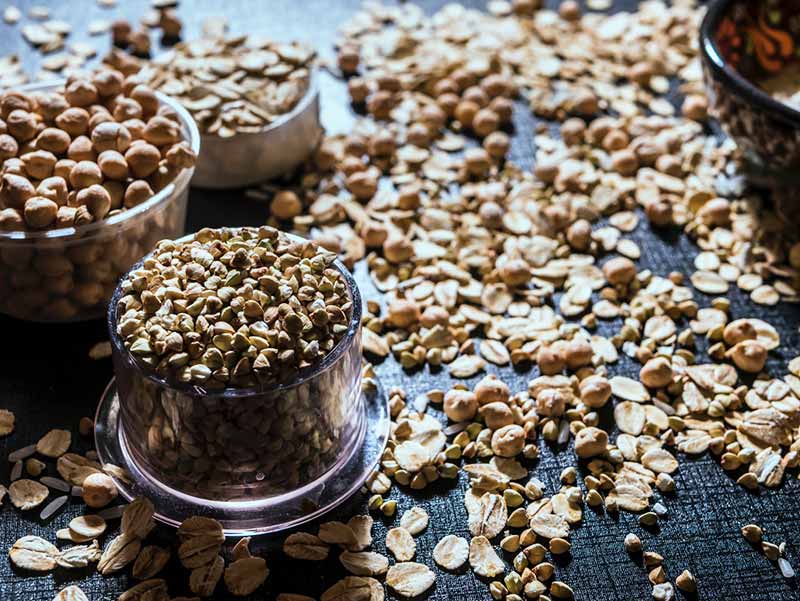
Zinc is needed for numerous processes in the body and is a co-factor for the formation of over 300 enzymes. Thus, zinc is involved in more enzyme processes than all other trace elements combined. For optimal absorption, you should consider a few things, as there are both beneficial and inhibitory factors.
The absorption of zinc is mainly inhibited by phytic acid.4 Other inhibitors include polyphenols, calcium and other divalent cations, and some drugs. Therefore the Absorption of zinc promoted when food is prepared in such a way that phytic acid is broken down. You can achieve this by soaking, sprouting, heating or fermenting food. Furthermore, a high protein intake has a beneficial effect on zinc absorption. If you combine zinc with organic acids, the absorption will also increase.5
Examples for Organic acids are:
- Citric acid from fruit such as raspberries or oranges,
- Malic acid from fruits such as plums or blueberries,
- Lactic acid from fermented foods such as sauerkraut, sourdough bread or (soy) yogurt
Similar to Iron the body is also able to increase the absorption of zinc if the body is supplied with too little zinc.
What is the daily requirement of zinc?
The daily requirement of zinc depends strongly on the phytate content of the diet, which is why the DGE reference values are subdivided into low, medium and high phytate intake. Since most people can hardly estimate their phytic acid intake, I recommend the above-mentioned preparation methods to reduce phytic acid.
For adult men, the daily requirement is between 11 and 16 mg/day. And adult women need about between 7 and 11 mg/day.1 The following table shows the reference values in mg for the daily zinc intake of children and adolescents.
| Children and teenagers | male | female |
| 1 to under 4 years | 3 | 3 |
| 4 to under 7 years | 4 | 4 |
| 7 to under 10 years | 6 | 6 |
| 10 to under 13 years | 9 | 8 |
| 13 to under 15 years | 12 | 10 |
| 15 to under 19 years | 14 | 11 |
What are the functions of zinc in the body?
As already mentioned, zinc is the trace element that is by far involved in the most Enzyme systems is involved. Furthermore, it is important for the Insulin storage or the regulation of blood glucose levels, the Wound healing and the Protein synthesis. In men, the trace element also supports the Sperm formation.6 In addition, zinc is particularly important for a well-functioning Immune system.7
Here is an overview of all the functions:
- Co-factor in the enzyme system
- Blood glucose regulation
- Wound healing
- Protein synthesis
- Strengthening the immune system
- Sperm formation
Is it possible to overdose on zinc?
A corresponding overdose through the diet is Extremely unlikely. However, it is possible to ingest too much zinc through overuse of supplements. Symptoms of zinc toxicity include nausea, vomiting, loss of appetite, abdominal cramps, diarrhea, and headache.3
Causes and symptoms of zinc deficiency
The likelihood of suffering from a severe zinc deficiency is unlikely with a balanced, high-energy diet. Alcoholics are particularly at risk because their zinc absorption is inhibited.
Potential deficiency symptoms depend on the age and sex of the individual. In children and adolescents can Growth disorders occur. Other symptoms are Hair loss, skin changes, night blindness and disturbances of the sense of smell and taste. Since zinc also affects the Wound healing and the Immune system effects, they can also be weakened. Men can benefit from a disturbed spermatogenesis be affected.8
Particularly at risk: Alcoholic.
What foods contain zinc?
After all the information, you are certainly already curious about which foods contain particularly high amounts of zinc. Basically, the nutrient is contained mainly in meat and cheese. However, since I have chosen a plant-based diet for ethical, ecological and health reasons, I prefer the following, plant sources of zinc:
- Wheat Germ (18 mg per 100 gram)
- Poppy (8.1 mg per 100 gram)
- Sesame (7.7 mg per 100 gram)
- Pumpkin seeds (6.5 mg per 100 gram)
- Flaxseed (5.5 mg per 100 gram)
- Oatmeal (4.2 mg per 100 gram)
Zinc supply in vegan diet
According to the German Nutrition Society (DGE), zinc is defined as a potentially critical nutrient in plant-based diets.9 One of the reasons for this is that meat and cheese are particularly good sources of zinc. With a balanced vegetable dietwhich contains seeds and nuts, you can cover your zinc needs.
Find the right zinc supplement
Zinc supplements come in many different forms, such as. Drops, capsules, (effervescent) tablets or powder. At the same time, there are also multi-nutrient preparations or dietary supplements that contain only zinc. You should therefore consider whether you want to cover several nutrients with one preparation or specifically supplement only the one nutrient.
If you decide to take a zinc supplement, it may be wise to take the Coordinate nutritional supplementation with your primary care physicianin order to avoid overdosing. If supplementation is useful, then the following preparations in drop, tablet, powder or capsule form are recommended.
Vegan multi-nutrient capsules: you get here*
Immune capsules with zinc, vitamin C, selenium and iron you get here*
Cover zinc supply safely
As you have read, there are factors that inhibit or promote zinc absorption. With a plant-based diet, it can be helpful to avoid the inhibiting factors and use the promoting ones. If you eat a balanced diet, you can prevent deficiency symptoms. And if you also exercise regularly and Spend time in the fresh airThese measures can also help many Prevent diseases.
Do you have any questions or suggestions about this post on zinc? Then feel free to write me a comment.
All the best,

PS.: You are interested in it, why we live vegan? In the linked article you can read our reasons! And if you want to know even more about nutrients, then feel free to check out the post about Vitamin B12.
References:
1 Deutsche Gesellschaft für Ernährung e. V.: Zink, dge.de/science/reference-values/zink/?L=0, [20.05.2021].
2 European Food Safety Authority: Tolerable Upper Intake Levels for Vitamins and Minerals, https://www.efsa.europa.eu/sites/default/files/efsa_rep/blobserver_assets/ndatolerableuil.pdf, [20.05.2021].
3 National Institutes of Health. Office of Dietary Supplements: Zinc. Fact Sheet for Health Professionals, https://ods.od.nih.gov/factsheets/Zinc-HealthProfessional, [05/20/2021].
4 C. L. Adams, M. Hambidge, V. Raboy, J. A. Dorsch, L. Sian, J. L. Westcott, N. F. Krebs: Zinc absorption from a low-phytic acid maize, https://academic.oup.com/ajcn/article/76/3/556/4677421, [20.05.2021].
5 B. Lönnerdal: Dietary factors inlfuencing zinc absorption, in: The Journal of Nutrition, Volume 130, Issue 5, https://academic.oup.com/jn/article/130/5/1378S/4686381, [20 May 2021].
6 S. Schrör: Zinc: effects and daily requirements, https://www.netdoktor.de/ernaehrung/zink/ [20.05.2021].
7 Haase, Hajo; Rink, Lothar (2014): Multiple impacts of zinc on immune function. In: Metallomics : integrated biometal science 6 (7), S. 1175–1180. DOI: 10.1039/c3mt00353a. [20.05.2021].
8 S. Schrör: Zinc Deficiency, https://www.netdoktor.de/ernaehrung/zinkmangel, [20.05.2021].
9 Deutsche Gesellschaft für Ernährung e. V.: Supplement to the position of the German Nutrition Society regarding population groups with special nutritional needs, https://www.dge.de/wissenschaft/weitere-publikationen/dge-position/vegane-ernaehrung/?L=0, [20.05.2021].

